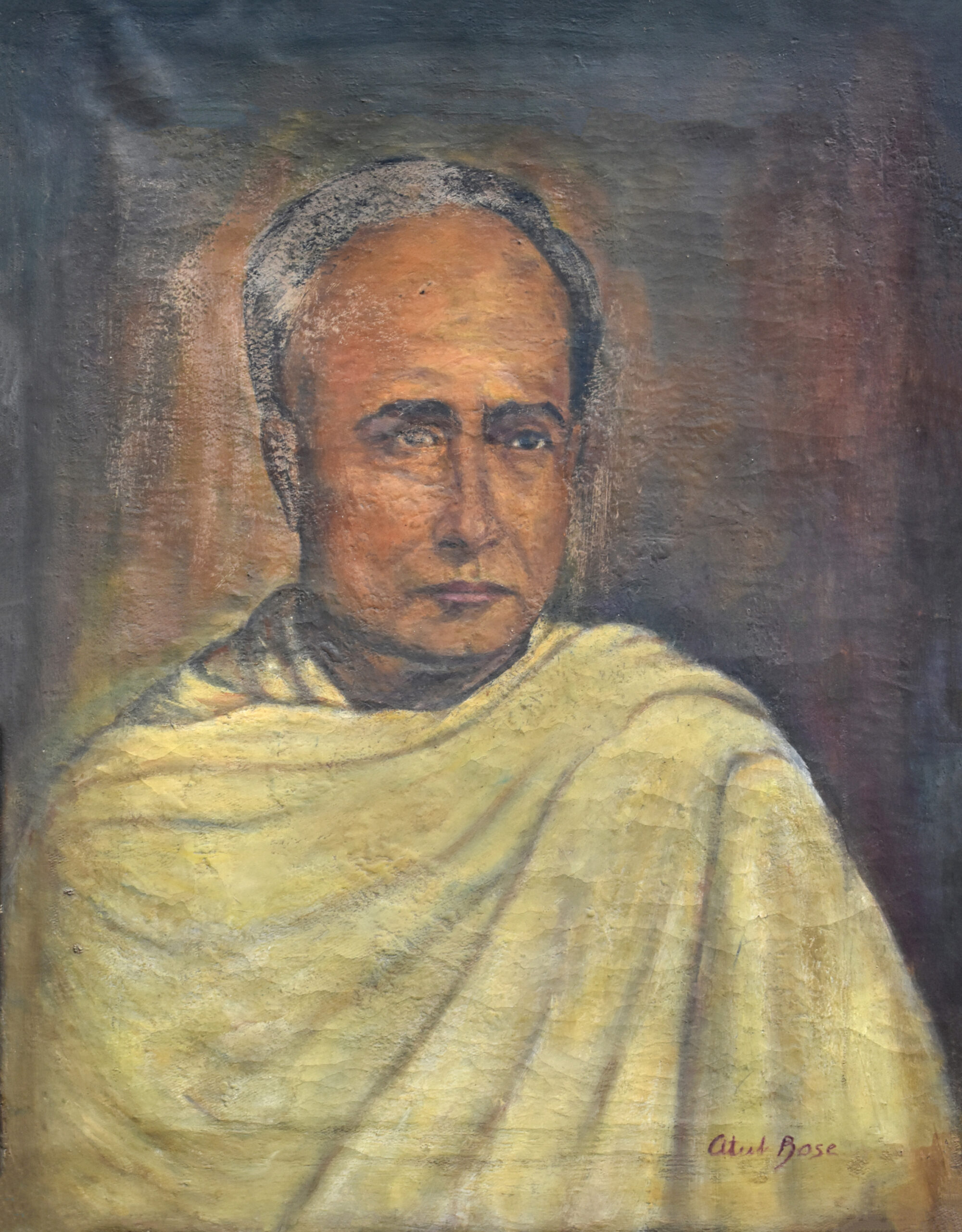Ishwar Chandra Bandyopadhyay (1820 – 1891)
an Educator and Social Reformer
Artist Atul Bose (1898 – 1977)
circa 1930, Oil on canvas
18 x 14 in. (45.7 x 35.6 cm.)
Ishwar Chandra Bandyopadhyay, popularly known as Ishwar Chandra Vidyasagar, was a pioneering Indian educator, reformer, and writer during the Bengal Renaissance. Known for his monumental contributions to the education system, especially for women. He also relentlessly fought against social evils like child marriage and the caste system, Vidyasagar epitomized humanism and intellectual courage. His efforts led to the Widow Remarriage Act of 1856, a milestone in the Indian social reform. Vidyasagar’s legacy is one of deep compassion, logic, and progressive thinking, qualities that inspired generations to come.
This portrait, painted by Atul Bose around 1930, captures Vidyasagar’s dignified and resolute persona. Atul Bose was an important Indian artist from Bengal, trained at the Government College of Art & Craft in Kolkata. Known for his mastery in realistic portraiture, Bose’s works often carried a quiet strength and emotional depth. In this painting, the soft, earthy palette and controlled brushwork highlight Vidyasagar’s simplicity and inner strength. Draped in a traditional shawl, his calm yet commanding expression reflects his intellectual depth and moral authority. Created before India’s independence (1947), this portrait not only honors a national icon but also echoes the spirit of reform and awakening that artists like Atul Bose passionately celebrated.
